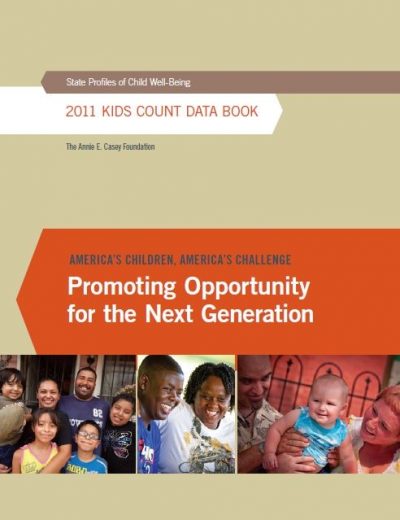Unemployment and Children
Almost 11% of our nation’s children had at least one unemployed parent in 2010, affecting nearly 8 million children. This number more than doubled between 2007 and 2010.

The KIDS COUNT Data Book is an annual publication that assesses child well-being nationally and across the 50 states. The 2011 report begins with an essay, “America's Children, America's Challenge: Promoting Opportunity for the Next Generation," which describes the recession's effects on children. Highlighting the risks the crisis poses for the next generation and our nation's future, the essay forcefully argues for a two-generation policy approach that both helps parents put their families on a path to economic success and enhances children’s social, emotional, cognitive and physical development from birth.
The remainder of the report provides national and state data on 10 indicators that reflect a range of factors affecting child well-being, particularly health, adequacy of income, and educational attainment. Based on a composite index of the 10 indicators, the 3 highest ranked states for child-being overall were New Hampshire, Minnesota and Massachusetts; the 3 lowest ranked states were Mississippi, Louisiana and Alabama. At the national level, overall child well-being stagnated since 2000 after improving in the late 1990s.
In 2009, 20% of children (14.7 million) were living in poor families, up from 17% in 2000. This represents about 2.5 million more children living in poverty in 2009 than in 2000. Over the same period, the percentage of children living in single-parent families increased 3 percentage points to 34%.
We hope you'll find value in this report. We’d love to get a little information from you, which we'll use to notify you about relevant new resources.